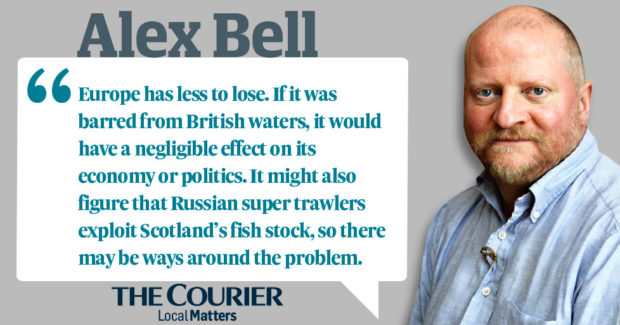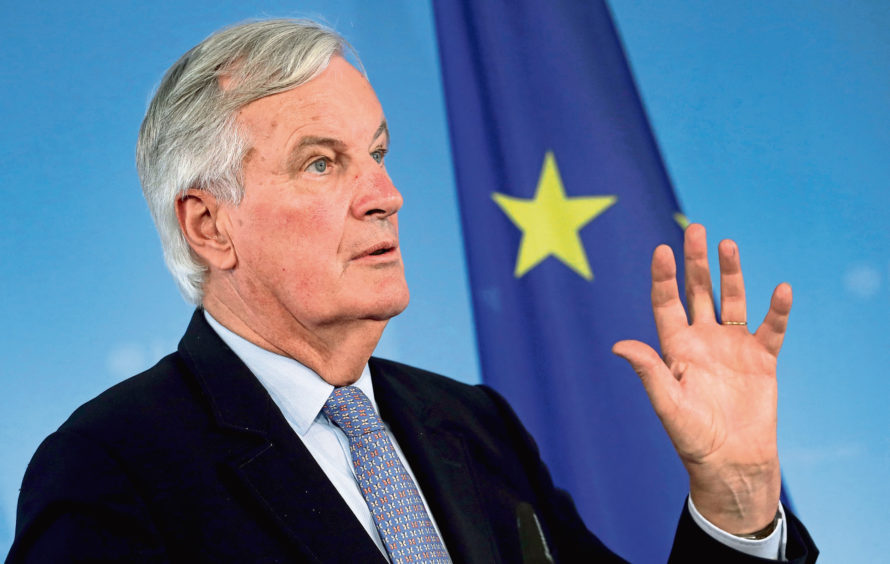Farewell, and thanks for all the fish. The EU is about to wave goodbye – a tear in its eye and regret in its heart – to the UK, Alex Bell writes.
They will be mourning an ideal of international co-operation in Dublin, Paris and Berlin. In London, it’s not clear what’s to be celebrated.
The UK formally left in January and the transition period ends in December. Then it’s over. The promise was that we’d do a new deal with Brussels. Remember “having our cake and eating it”, Boris Johnson’s confident projection that the UK would get all it wanted? So far, we have nothing. Perhaps this is part of the PM’s new war on obesity. From an economic standpoint, it’s feast to famine.
The upside is that the UK will not have to settle its continuing obligations to the EU. On that, Johnson said Brussels could “go whistle”. Dedicating three years to negotiations suggests London wasn’t quite that flippant, but it’s hard to tell who loses the most from this.
At the time of the Brexit vote in 2016, the sequel to the successful 1990s movie Independence Day was released with lots of publicity. Johnson took to declaring the vote “our independence day”, a clear nod to the little Britainers who disliked aliens. Even the racist agenda looks rather flawed in a Covid world where incomers staffed the NHS and care home frontline and died.
When the UK formally left on January 31, a cut-off date of June 30 was set for the transition period to be extended. That passed with no extension. It means we have until the end of December to agree Brexit terms.
Boris then set a deadline of July 31 for any deal to be agreed in principle. That’s tomorrow and there’s no sign anything will be done. Both sides nod to October as the new deadline, though there’s nothing in law or print to this effect.
Each have taken to saying they couldn’t be clearer and it’s just a question of the other conceding. Well, they would say that, wouldn’t they. The key public issues are fish and trade. Boris wants Brexit voters to know he’s going to fight for our fishermen. Michael Barnier, the EU’s negotiator, that Europe’s single market will be protected no matter what.
Playing to the home crowd makes sense, but has dangers. Should Johnson concede in any way on fishing, as the City might demand in return for access to Europe, and he’ll look weak. For a PM gaining a reputation as a flip-flopper, he can’t afford the idea to grow that he’s all talk and no substance.
Europe has less to lose. If it did find itself barred from British waters, then that would have a negligible effect on its economy or politics. It might also figure that Russian super-trawlers exploit Scotland’s fish stock, so there may be ways around the problem. As for the “fruits de mer” platters in Paris supplied by fish landed in Scottish ports, there’s no reason to think the trade will stop. After all, Scots show no great appetite for anything but haddock, so there will plenty of supply.
A greater motivating factor will be Covid economics. The chief of Citibank said recently that there are no models for the situation the world is in; nobody knows what might happen.
So far government stimulus has kept markets stable. The criminals of the last bust, the banks, are looking perky. Billions have been set aside for bad loans. But the stimulus is coming to an end as the reality of post-lockdown economic activity reveals itself.
We might be in the false safety of pre-tsunami, when the sea retreats and things seem good. A big wave of disaster could be about to crash upon us. Which is why it’s not fishing or the single market which are the key issues, but the state of the world this autumn that matters most.
Europe has just sanctioned a huge recovery plan. That’s debt the central bank will want to see repaid. It doesn’t want anything to make recovery harder.
Boris’s plan of a Britain which can strike trade deals before breakfast hasn’t come off. There is no deal in place with the USA and trade to China looks iffy post-Huawei. In truth, Britain looks dangerously vulnerable right now. If his premiership is not to be seen as a comedy routine, he needs post-Brexit Britain to have a quick economic bounce.
He was pinning that on free ports, tax cuts and relaxing regulation. A spiv Britain, its raincoat open flashing contraband to the world. So far the world isn’t that excited. And right now does not have the time for such shenanigans.
The virus has pushed national borrowing to astronomic levels. This brings risks which a truly independent UK might ill afford.
It’s not that no deal doesn’t have reputational benefits for Johnson, just that he has bigger fish to fry than the local catch.



